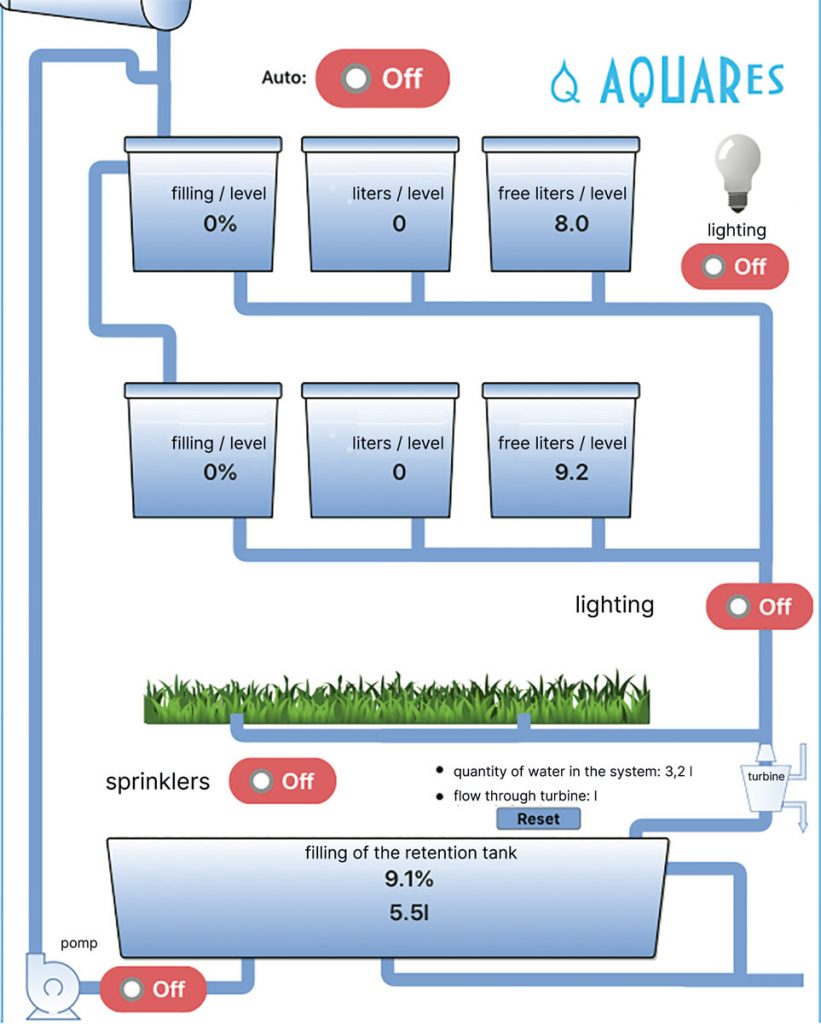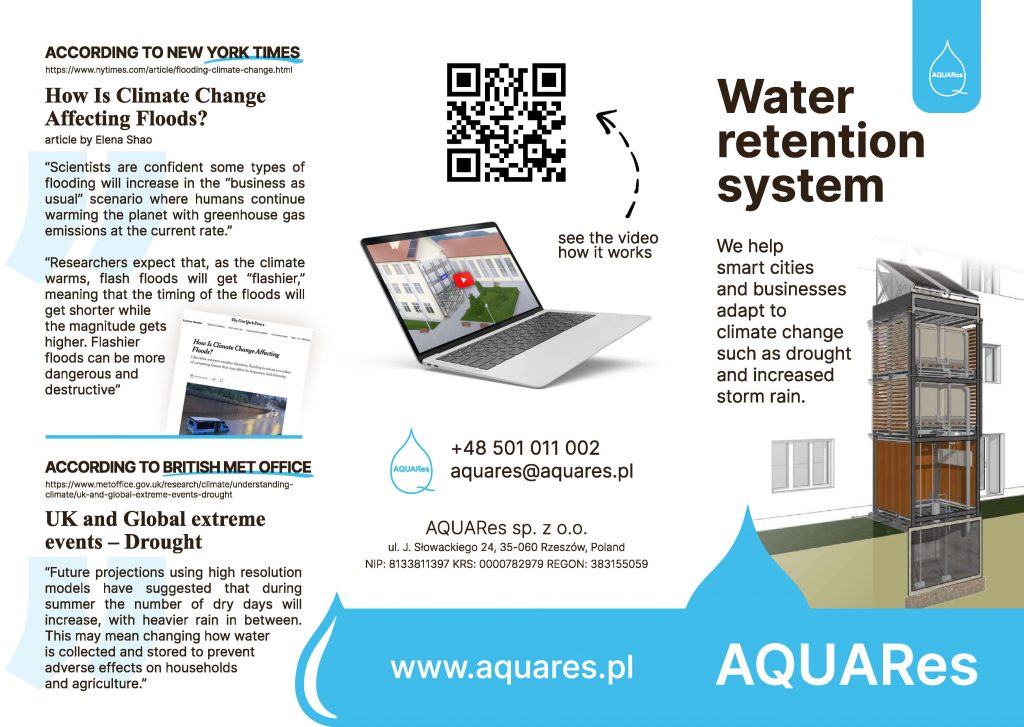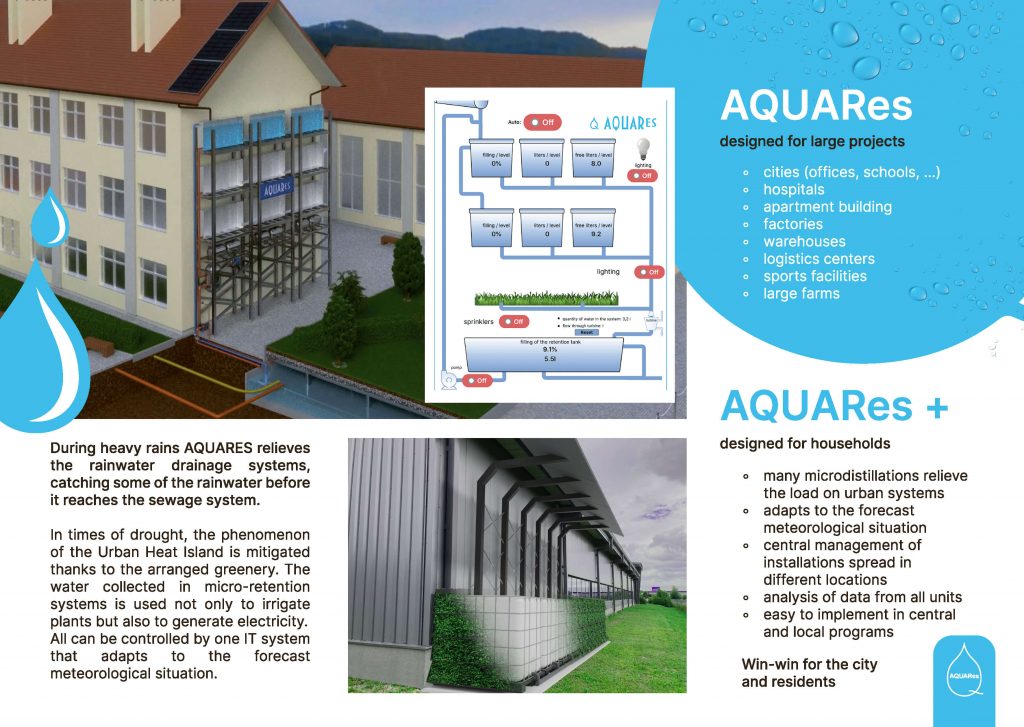Water retention system
We help smart cities and businesses adapt to climate change such as drought and increased storm rain.
During heavy rains AQUARES relieves the rainwater drainage systems, catching some of the rainwater before it reaches the sewage system.
In times of drought, the phenomenon of the Urban Heat Island is mitigated thanks to the arranged greenery. The water collected in micro-retention systems is used not only to irrigate plants but also to generate electricity.
All can be controlled by one IT system that adapts to the forecast meteorological situation.
AQUARes
designed for large projects
– cities (offices, schools, …)
– hospitals
– apartment building
– factories
– warehouses
– logistics centers
– sports facilities
– large farms
AQUARes +
designed for households
– many microdistillations relieve the load on urban systems- adapts to the forecast meteorological situation
– central management of installations spread in different locations
– analysis of data from all units
– easy to implement in central and local programs
Win-win for the city and residents
See the video how it works

According to New York Times
How Is Climate Change Affecting Floods?
article by Elena Shao
“Scientists are confident some types of flooding will increase in the “business as usual” scenario where humans continue warming the planet with greenhouse gas emissions at the current rate.”
“Researchers expect that, as the climate warms, flash floods will get “flashier,” meaning that the timing of the floods will get shorter while the magnitude gets higher. Flashier floods can be more dangerous and destructive”
—
According to British Met Office
UK and Global extreme events – Drought
“Future projections using high resolution models have suggested that during summer the number of dry days will increase, with heavier rain in between. This may mean changing how water is collected and stored to prevent adverse effects on households and agriculture.”


